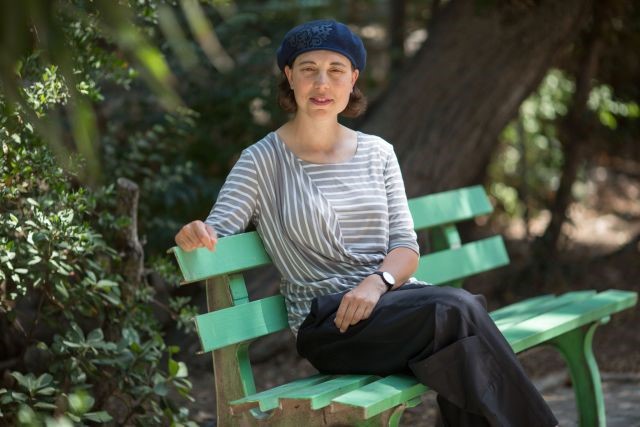A recent study of Dr. Yisca Monnickendam-Givon ties the gap between religious and secular earnings in Israel to lower income baseline and tax evasion
Tali Heruti-Sover Haaretz, TheMarker 27/09/2018
A Haredi woman and a secular woman both decide to start their own small businesses – who will end up earning more?
Even though Haredi women have a tougher time getting bank loans, professional guidance or help from small business centers, their enterprises are likely to boost their family income by 2,000 shekels ($557) a month, or 25%. Secular women on average get a 1,000 shekel, or 10% boost.
That's what Dr. Yisca Monnickendam-Givon found in her doctoral thesis at the Guilford Glazer Faculty of Business and Management GGFBM, Ben-Gurion University of the Negev under the supervision of Prof. Dafna Schwartz and Prof. Benny Gidron. The study "The surprising lack of connection between social networks and the enterprise success of ultra-religious female microentrepreneurs," published in the Journal of Enterprising Communities: People and Places in the Global Economy, examined the outcomes of 123 business employing five or fewer people started up by Haredi women, and 109 by secular women. Most of them were self-employed. The findings shed light on the challenges ultra-Orthodox women face at a time when the government is trying to lift the community out of poverty. The focus is mainly on the low level of male employment, but raising the incomes of Haredi women, who are much more likely to be breadwinners than their husbands, is critical as well.

Dr. Yisca Monnickendam-Givon. Photo: Emil Salman
The reasons for the gap in added income are good and bad. Haredi women typically start from a lower family income base than the average secular woman. But another reason is that Haredi business owners are far more likely not to be paying taxes.
Monnickendam-Givon's study found that 42% of the businesses she surveyed were not registered with the Israel Tax Authority, versus just 9.9% of secular businesses.
“The fact is that these businesses are not registered with the tax authorities, but Haredi women have a hard time marketing themselves, getting bank loans and asking for help from business-support centers," said Monnickendam-Givon.
“Only 14% of Haredi enterprises get professional help, compared with 60% of secular ones. The difficult of accessing professionals prevents these small businesses from growing and developing," she said.
Monnickendam-Givon expected to find that Haredi women enjoyed support from their tight-knit community, giving them a big advantage over their secular sisters. But that's not what she turned up.
The average Haredi female entrepreneur reported that she got help from three people, two fewer than the average secular entrepreneur. Only 34.5% of Haredi women said they made use of friends or family who were distantly related to them or only acquaintances; among secular women, the rate was nearly twice as high.
“In other words, among Haredi women the circle of support they can count on is a lot smaller, whether close or distant. Haredi businesswomen have a harder time seeking or getting help," she said. “The social network exists, but in the business context it is silent."
Even more than for secular women, Haredi female entrepreneurs rely on the support of their husbands.
“A spouse's support can predict success over time. The ultra-Orthodox spouses isn't only about general support, but about help with day-to-day management of the business," said Monnickendam-Givon, who is now a researcher at the Knesset Research and Information Center.
One reason for that is that ultraorthodox social norms discourage women from contact with men other than close relations, thereby depriving them of the half their possible business contacts. “For that reason the presence of a spouse is critical – he can use his social networks to help her business," said Monnickendam-Givon.
In the secular world, a woman entrepreneur's husband is more likely to have a career of his own, she noted.
Haredi entrepreneurs also come up against an attitude that being in business for women is less legitimate than simply being employed. As one Haredi woman explained it, “When you open a business it's as if you are admitting that you don't want to earn money but to make a profit."
Related Research by Dr. Yisca Monnickendam-Givon: Network Not Utilized: The Case of Ultra-Orthodox Female Micro-Entrepreneurs in Israel, published in the Journal of Developmental Entrepreneurship 2016
